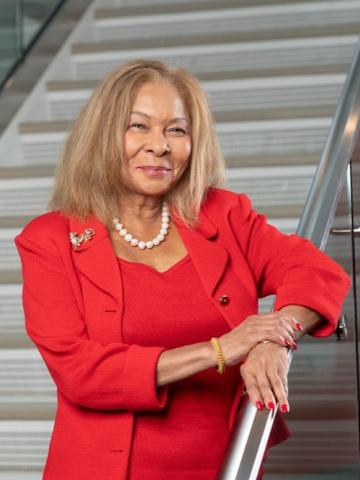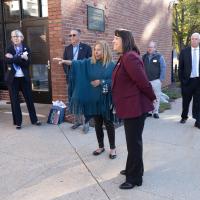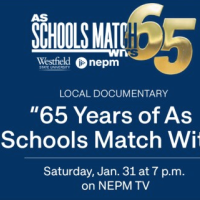
Reinforcing a Foundation of Equity Within Public Higher Education

President Linda Thompson.
Originally published in The Republican, November 7, 2024.
Earlier this month, I participated in a press conference held at Westfield High School. The event focused on the release of a report by the Healey-Driscoll administration on efforts to enhance access to the Commonwealth’s state higher education system. The report from the administration’s Advisory Council to Advance Representation in Education (ACARE), chaired by Massachusetts Secretary of Education Patrick Tutwiler and Massachusetts Commissioner of Higher Education Noe Ortega, was established ahead of the U.S. Supreme Court’s decision to overturn race-based higher-education admissions decisions.
The council’s findings and recommendations included increasing exposure and access to post-secondary education for K-12 students and encouraging adult learners, developing innovative recruitment strategies, improving equity in financial aid and support to historically unrepresented students, and increasing persistence and completion for underserved students in higher education.
As I share the administration’s values to ensure a diverse, inclusive, and equitable learning environment, I was happy to participate. The recent actions taken by the Healey-Driscoll administration related to accessibility in education underscore a commitment to creating access for the citizens of the commonwealth and for those who want to stay in Massachusetts, build businesses, support our economy, and strengthen their families.
At Westfield State University, we are committed to strengthening our partnerships and relationships that develop efficiencies within the education system and creating opportunities for those who have been historically excluded from participating in higher learning. Collaboration between the community colleges, state universities, and the department of higher education has never been more critical. With the launch of free community college for all this year, the state universities and community colleges presidents are discussing some new and innovative partnerships.
Earlier this month, the Community College and State University Council of Presidents met jointly at Quinsigamond Community College to discuss ways to partner to offer students seamless and affordable pathways from a two-year to a four-year degree. We talked about establishing system-wide joint admissions agreements, early college admission agreements between the two systems and high schools, pathways for community college students to live in state university on-campus housing, and maximizing the positive impact of the free community college initiative. We are committed to working with our community college partners to create a seamless system of public higher education for students in the Commonwealth.
Increasing exposure and access to higher education for K-12 students by continually enhancing the availability, intensity, and quality of services for students is one of the main policy areas mentioned as opportunities for improvement in the ACARE report. The Westfield Promise early education program, originated in 2017 at Westfield State University, now partners with Holyoke, Springfield, and Westfield public schools. This program has benefited hundreds of first-generation, underserved, and underrepresented students by providing a strong incentive to pursue higher education. With stronger support, this program can expand to other cities and towns throughout the region, resulting in a more educated workforce that will strengthen our economy and grow businesses in the Commonwealth.
A key recommendation of the ACARE report focuses on enhancing wraparound services for our students. Westfield State’s LEAD Scholar Program, formerly the Urban Education Program, has been part of the fabric of our campus for the past 56 years. The mission of LEAD Scholars is to provide college-level support for first-generation students to improve individual performance and academic achievement. From its inception, the program upholds the goals of enhancing and enriching the campus community by increasing the representation of diverse populations, championing inclusivity, and fostering academic excellence, leadership, and belonging.
Reaching into underserved communities while making education affordable and streamlining educational pathways are key elements to unlocking the potential of all individuals who aspire to become leaders of our communities. I commend and appreciate the findings and recommendations of the Advisory Council to Advance Representation in Education and will work to reinforce our programs that offer educational opportunities through community and academic partnerships that lead to the removal of barriers for all students.


